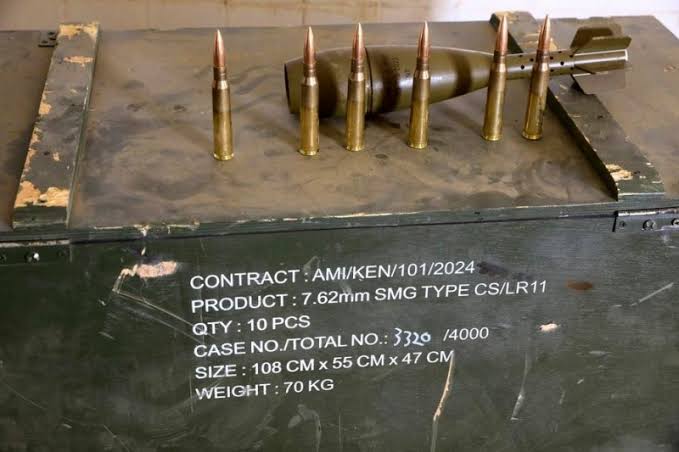A shocking report by NTV Kenya has revealed that weapons with Kenyan logos and names have been found in Sudan, raising fears about Kenya’s possible involvement in illegal arms trade.
The discovery was made by Sudanese soldiers who were going through an abandoned city store that was once controlled by the Rapid Support Forces (RSF), a powerful paramilitary group in Sudan.
Inside a dark, dusty room, the soldiers came across sealed boxes. What they found inside left them stunned guns and other weapons clearly marked with Kenyan identifiers.
Their reactions were captured on video, showing clear shock and confusion over how such weapons ended up in Sudan.
NTV’s report is the result of a six-month investigation into arms trafficking. The findings suggest that weapons connected to Kenya have somehow made their way into the hands of the RSF, which is actively involved in the civil war tearing Sudan apart.
This discovery is especially troubling because Sudan is still under an international arms embargo. The embargo is meant to limit the movement of weapons into the country in hopes of reducing violence and bringing peace. The presence of these Kenyan-marked weapons shows that something is seriously wrong with how these restrictions are being enforced.
The footage aired by NTV shows soldiers lifting boxes and inspecting the weapons, many of which appear new and unused. Experts believe this could be a breach of international law, and they are now demanding answers.
How did weapons with Kenyan marks end up in a war-torn country under embargo? Who is responsible for supplying or moving these weapons? Was it done knowingly or by accident?
These are the questions now facing Kenyan officials, manufacturers, and distributors.
Kenya now finds itself under global scrutiny. If the weapons were exported knowingly, it could suggest illegal arms trading. If they were diverted after legal export, it points to weak tracking and poor control measures.
Either way, this issue threatens Kenya’s image as a stable and responsible country in the region. Authorities in Nairobi are already under pressure to launch a full investigation into how these weapons were moved and who was involved.
This report also highlights the importance of investigative journalism. Without NTV’s deep digging, this scandal may have remained hidden.
Their work is not only exposing a serious security threat but also pushing both local and international bodies to act. The revelation may lead to wider investigations into arms trafficking across East Africa.
If such weapons can cross borders undetected, then the entire region is at risk. What happens next could shape how arms control is handled in the future, not just in Kenya but across Africa.

